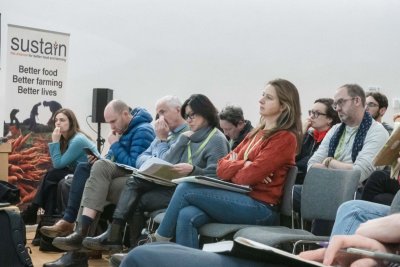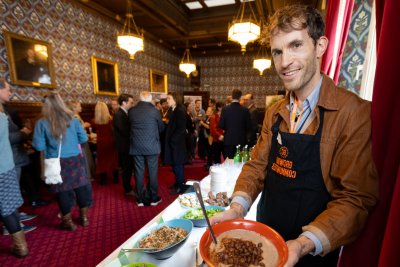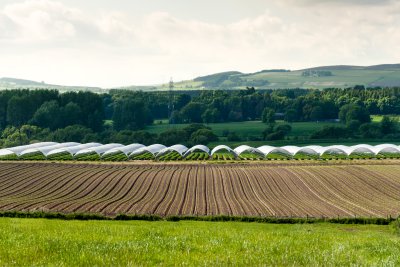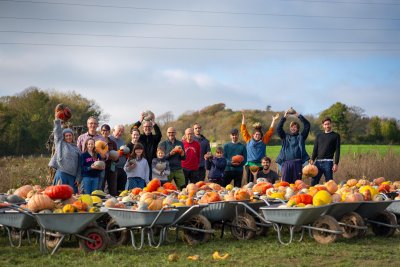Sustain: Sustain The alliance for better food and farming advocates food and agriculture policies and practices that enhance the health and welfare of people and animals, improve the working and living environment, enrich society and culture and promote equity.

Good and bad news for organic gardeners
Neonics kept out of the UK, but glyphosate gets a leg-up, reports Sustain member Garden Organic
Garden Organic, the campaign group for organic gardeners, has had cause for celebration and head-scratching lately.
To take the good news first, UK ministers rejected a request from the National Farmers' Union (NFU) to be allowed to make 'emergency' use of neonicotinoids on oil-seed rape crops. Neonicotinoid pesticides ('neonics') have been shown to be harmful to bees, and were banned from use on flowering crops by the EU in 2013. However, British ministers granted a temporary lifting of the ban in 2015 after the NFU argued it was needed to fight the cabbage stem flea beetle (CSFB).
This year, though, the government’s scientific advisers said that the application, from the NFU and the Agriculture and Horticulture Development Board, should not be granted. Farming minister George Eustice then rejected the plan, the first time the Government has ruled against neonicotinoid use. The Government said it could not be confident that use would be appropriately controlled.
However, elsewhere glyphosate was given a clean bill of health by the UN’s joint meeting on pesticide residues (JMPR). This contradicts the WHO’s cancer agency announcement last year that the herbicide was 'probably carcinogenic to humans'.
This conflicting evidence over glyphosate's safety creates a confusing environment for gardeners. Garden Organic's advice, however, is that by following correct practices and working with nature, gardeners can avoid its use. It provides tips on how to avoid glyphosate and other pesticides here.
Read more about Sustain's work in support of organic food growing here.
Sustain
The Green House
244-254 Cambridge Heath Road
London E2 9DA
020 3559 6777
sustain@sustainweb.org
Sustain advocates food and agriculture policies and practices that enhance the health and welfare of people and animals, improve the working and living environment, promote equity and enrich society and culture.
© Sustain 2026
Registered charity (no. 1018643)
Data privacy & cookies
Icons by Icons8







